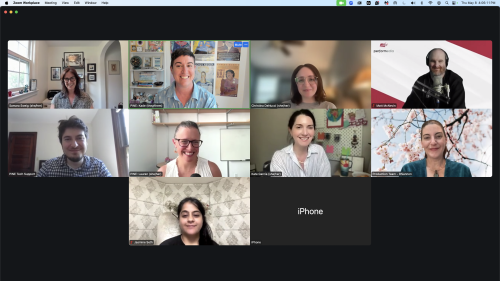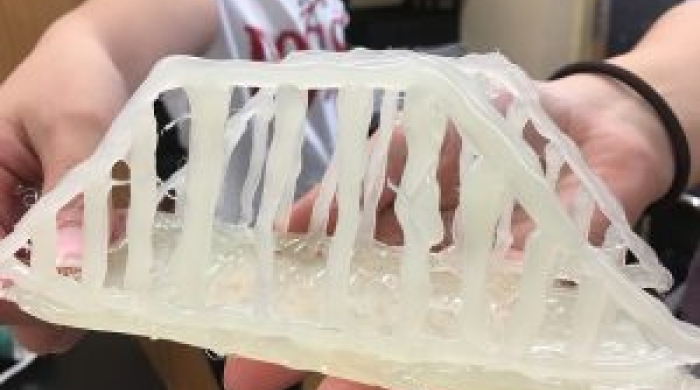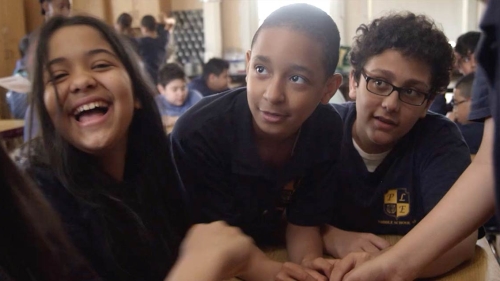The Program for Inclusion and Neurodiversity Education offers expert-developed resources and innovative programming to create inclusive spaces.

On May 7 and 8, NYU Steinhardt’s Program for Inclusion and Neurodiversity Education (PINE) hosted a two-day virtual conference for educators, school administrators, caregivers, and others committed to building neuro-affirming communities.
Launched in 2017, PINE currently works with more than 50 member schools across the U.S. and Canada, offering continuous, system-wide support to create inclusive, accessible, and supportive spaces for children wherever they go through leadership trainings, virtual consultations, and more. They have reached an estimated 48,000 children with their efforts to reshape learning environments where every child experiences the transformative power of belonging.
“The Summit is unique in the space of professional development as it is anchored with a majority of presenters with lived experience that leads with neuro-affirming principles and practices,” says Kristie Patten, advisor to PINE, professor of occupational therapy at Steinhardt, and counselor to the NYU president.
The annual PINE Summit draws an international audience of educators, school administrators, researchers, service providers, students, families, and self-advocates—those who are neurodivergent themselves—who are looking for neuro-affirming content. This year’s theme of “Cultivating Connection” highlighted the power of creating more of a continuum of neuro-affirming support and training that extends to all the places a child goes throughout their day.
“This is the fourth year we have hosted the PINE Summit, and it’s very exciting to see the exponential growth we’ve experienced,” says Samara Sweig, co-founder and vice president of business strategy and operations. “We had 400 attendees from 26 states and eight countries this year, including several nonprofit organizations. These organizations often partner with schools to serve neurodivergent students in afterschool and other programs, but don’t necessarily have access to the same neurodiversity and inclusion training.”
Attendees also included a range of folks from the Steinhardt community, such as members of the Nest Support Project at NYU Steinhardt and alumni from various academic programs.
Panels explored strategies to bridge gaps in communication and understanding, as well as how collaborative efforts rooted in shared practices can foster meaningful connections and a sense of belonging for all. One particularly impactful session from the first day was “Trauma-informed Practices and Student Mental Health,” which convened Gillian Boudreau, a licensed clinical psychologist and a licensed school psychologist; Jason Arday, professor of sociology of education at the University of Cambridge; and Lauren Melissa Ellzey, an author and educator—all of whom identify as neurodivergent.
“It was a powerful conversation held by neurodivergent self-advocates who reflected on not only their time in school, but also on what they know now as adults and professionals,” says Sweig. “Student mental health has been more top-of-mind since COVID, but this panel touched on the importance of not just how to respond to kids who are struggling, but how to get in front of the challenges before they happen.”
The second day of the PINE Summit featured “Connecting the Dots Between Home, School, and Recreational Programs,” a free session that was open to the public. This fireside chat discussed the isolation and burnout that parents and caregivers of neurodivergent children experience.
“Each year, we offer at least one session for free and open it to the community, which we often skew toward parents and caregivers because we know they need support, too,” says Sweig. “The host and panelists were all parents of neurodivergent kids, and some were neurodivergent themselves. Families of neurodivergent kids often feel isolated and criticized, and this was a very honest, genuine conversation about how hard it can be. Attendees said it was very helpful and validating.”
PINE’s support of parents and caregivers extends to their website, where they offer an online community with courses and tools for anyone supporting neurodivergent children and their peers outside traditional school settings.
Learn more about how PINE is transforming the landscape of inclusive education, and request more information about becoming a PINE Member School.
Related Articles
The Evolution of Practice: NYU Metro Center’s Nest Support Project Publishes New Book Highlighting the Impact of the Nest Model from 2012-2024
From the conception of the Nest Model in 2001 to its classroom implementation in 2012 and its current-day progression some twenty years later, a new tome from the Nest Support Project at NYU Metro Center showcases the foundational strategies and ongoing developments of the Nest Model.
Kristie Patten Koenig and Colleagues Awarded NSF Grant to Expand Autism Inclusion Programming
The new grant will expand inclusive maker programming to local high schools and elementary schools.
NYU Metro Center’s Nest Support Project Creates Dynamic Online Publication to Expand Access to Neurodivergent Affirming Practices
The Nest Support Project at NYU Metro Center develops a new digital platform to amplify autistic voices, share equity themed resources, and disperse inclusive education strategies to school staff, as well as folks looking to change their individual practices.




